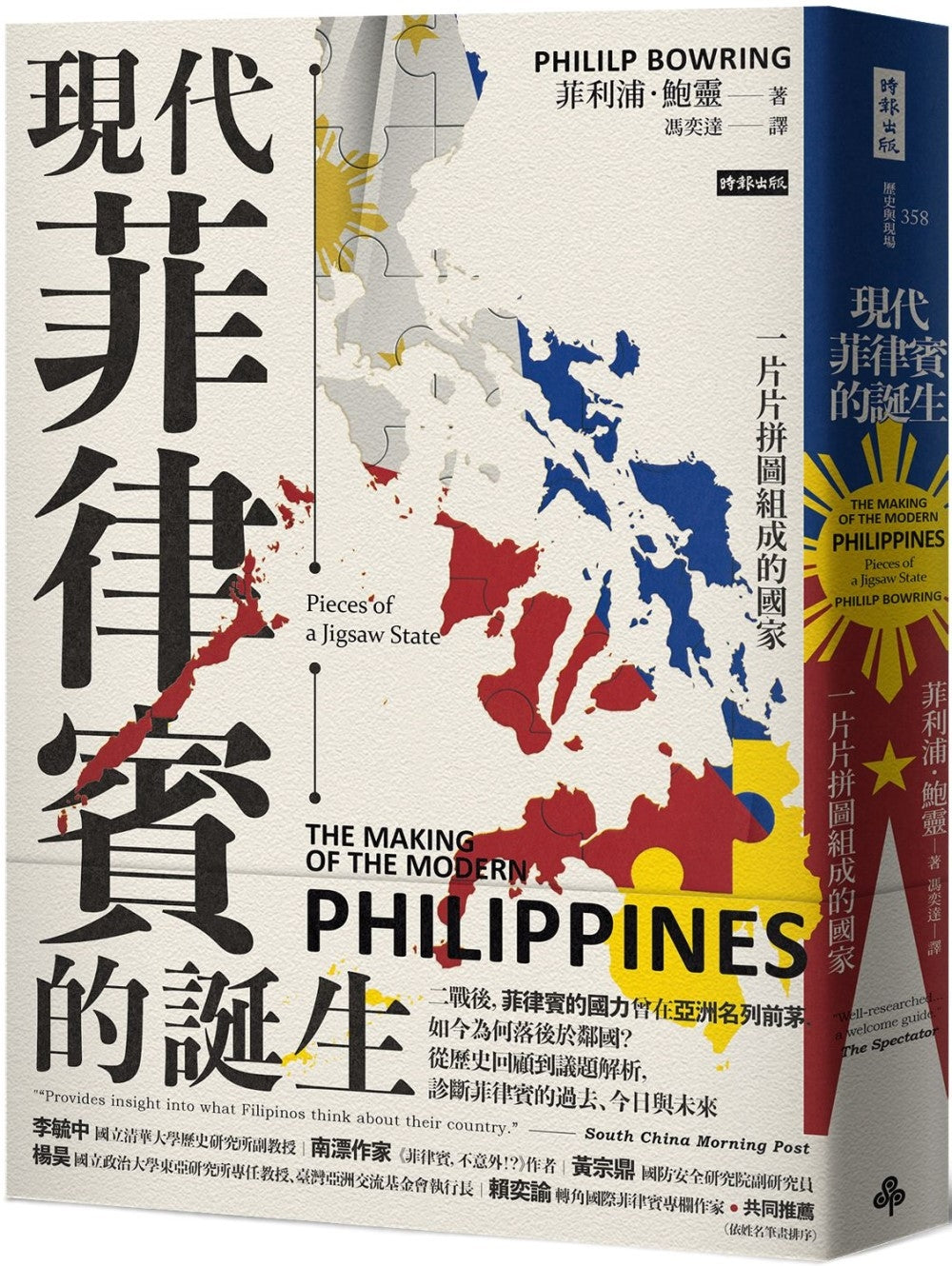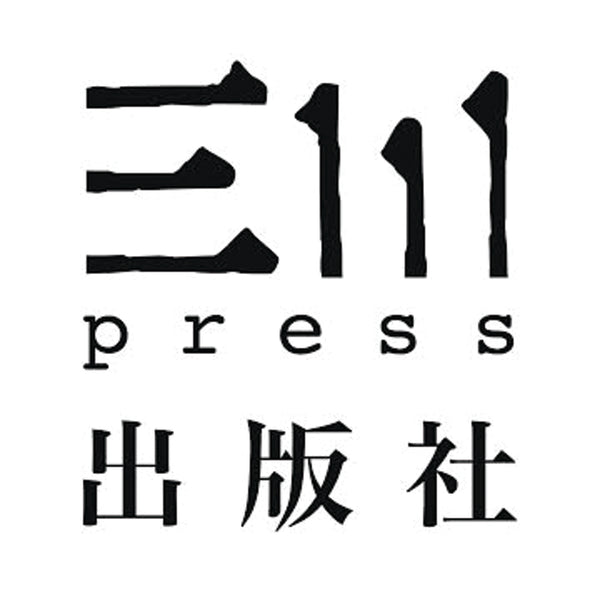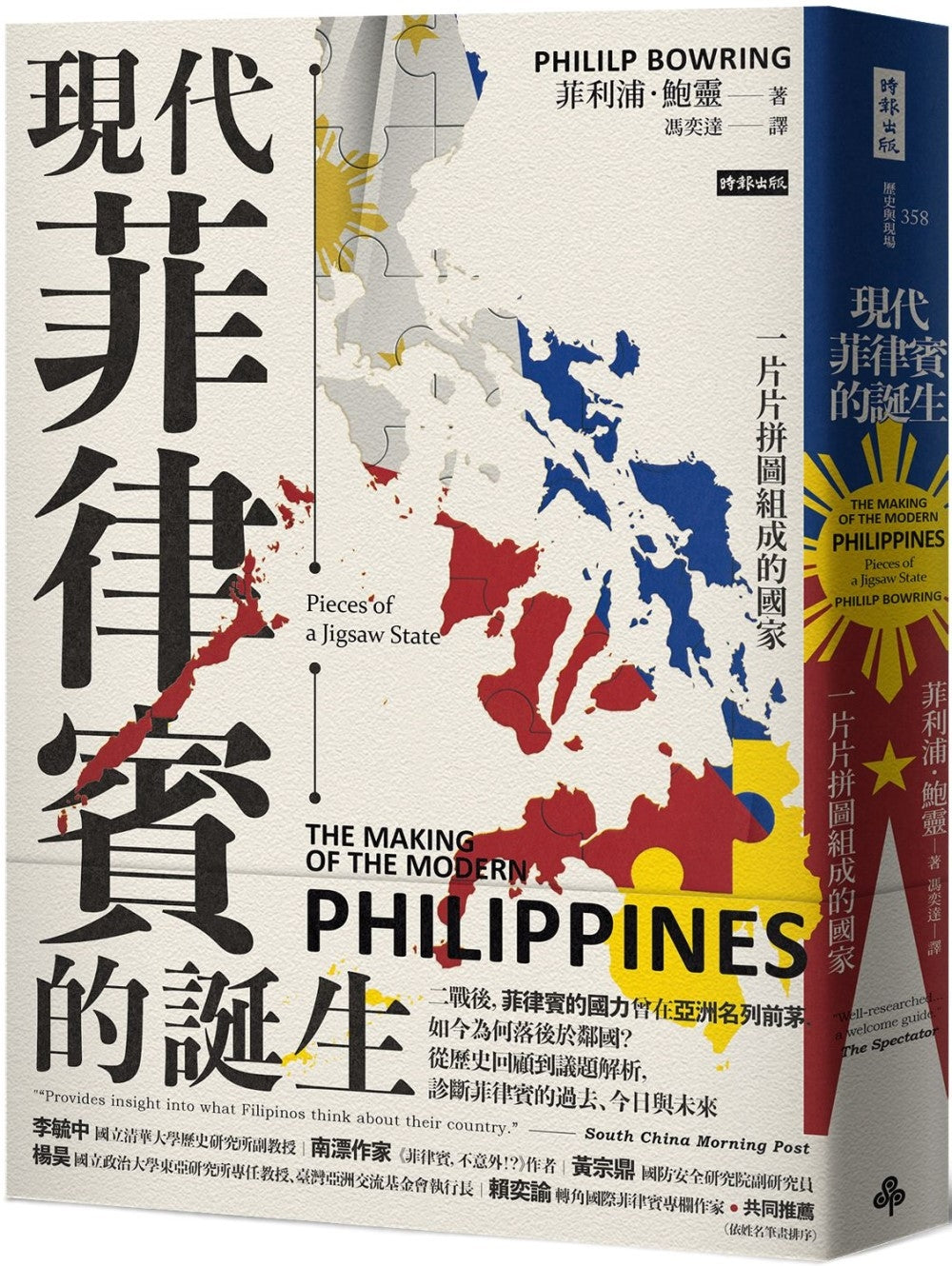The Birth of Modern Philippines: A Jigsaw Puzzle of Nations
The Birth of Modern Philippines: A Jigsaw Puzzle of Nations
In stock
Couldn't load pickup availability
出版社: 时报出版
ISBN/EAN: 9786263962293
出版日期: 2024-06-25
页数: 400页
语言: Traditional Chinese
The Philippines, a country with a thousand islands, is like a country made up of pieces of a puzzle.
The Philippine island chain lies at a strategic crossroads for major powers, and its fate often reflects the shift in global power.
The Philippines, now famous for its large army of overseas migrant workers, once ranked among the top in Asia in terms of political and economic strength. Why did it gradually fall behind its neighbors?
The latest masterpiece by Philip Bowling, author of Empire of Winds.
From historical review to issue analysis, a comprehensive diagnosis of the Philippines' past, present and future!
The Philippines, with its fragmented landscape and complex identity, is a unique and eclectic collection of cultures, environments, people, and politics. While known for natural disasters, migrant workers, and authoritarian presidents, Philip Bowling aims to show the world that there is much more to the country. "The Birth of the Modern Philippines" expertly weaves through Philippine history to outline and interpret this populous island nation's place in the modern world. Going beyond the headlines of volcanic eruptions, earthquakes, and violence, Philip Bowling examines why the Philippines' economy lags behind its neighbors, explores the significance of the Philippines' geopolitical position, and delves into the conflict between the Philippines' deeply rooted Catholic faith and the region's Islamic consciousness.
"The Birth of the Modern Philippines" explores the Philippines' pre-colonial history, through the Spanish and American occupations, and into the present day, offering a historical perspective on this rich and unique nation, unraveling its complex web of politics, culture, ethnicity, and economy. As Filipinos confront challenges such as federalism, revolution, Mindanao, the diaspora, capitalism, and relations with China, this book rediscovers the Philippines' past conflicts, culture, and history to understand the present and anticipate the future.
Recommended by all walks of life
Li Yuzhong (Associate Professor, Institute of History, National Tsing Hua University)
Writer from the South (author of "Philippines, No Surprise!?")
Huang Zongding (Associate Researcher, National Defense and Security Research Institute)
Yang Hao (Full-time Professor at the Institute of East Asian Studies, National Chengchi University, and Executive Director of the Taiwan Asia Exchange Foundation)
Lai Yiyu (Philippine columnist for Corner International)
——Common recommendations (sorted by the number of strokes in the name)
The Philippines is defined by a multitude of contradictions, captured with unerring precision in Philip Bowling's The Birth of the Modern Philippines. Only a true "Asia expert" who has lived in and loved this region could paint this troubling portrait of my country and present it to the world. —Patricio N. Abinales, Professor of Asian Studies at the University of Hawaii at Manoa
Bowring's story of the Philippines fuses history with current events, refining the past and dissecting the present. The ghosts of the Philippines intertwine with those of Spain, America, and Japan. This book is essential reading for young Filipinos who want to understand the essence of their country. Bowring's mere interweaving of his reporting over the past thirty-five years since the fall of the dictator allows you and me to see what went wrong and what remains of the hope that this country once held. —Criselda Yabes, Filipino writer and journalist.
Broad yet accessible, this book illuminates the intertwined Malay roots and connections of the Philippines, its lingering colonial legacy, and its contemporary geopolitical predicament. Drawing on the country's complex, diverse, and multifaceted past, Bowling paints a vivid picture of how the Philippines has come to where it is today and what its future holds. —Liana Chua, Tunku Abdul Rahman Assistant Professor of Malay World Studies, University of Cambridge
In this book, Philip Bowling unravels the mystery of the Philippines. His vivid narrative journeys from pre-colonial times, through colonization and military occupation, to the dictatorship of Ferdinand Marcos...allowing us to understand how the darker forces of the country today are rooted in its past. Strategically situated, the fate of its 100 million people is likely to have a disproportionate impact on the future stability of Asia, and indeed, the entire region. This timely work is essential reading for anyone seeking to understand this country. --Keith B. Richburg, Director, Journalism and Media Studies Centre, The University of Hong Kong
Philip Bowring
A journalist and writer, he graduated from the Department of History at Cambridge University, specializing in Asian maritime history and economy. He has been stationed in Asia since 1973, writing columns for international publications and serving as editor-in-chief of the Far Eastern Economic Review. He is the author of Empire of Wind: The Key to Global Trade and the Prosperity of Maritime Asia.
Feng Yida
A full-time translator, currently caring for a cat, very afraid of earthquakes, and can play keyboard and guitar. A Master's degree in World History from the Department of History at National Chengchi University. His translations include "Empire of the Winds," "Our Sea," "Kublai Khan's Cheetah," and "The Price Collapse." N is a rational number.
sequence
Introduction: The Philippines: A Puzzle Within a Puzzle Chapter 1: A Fragmented Geography, a Complex Identity Chapter 2: Education Before Politics Chapter 3: “Uncle Sam’s Little Brown Brother”
Chapter 4: Choosing Evil Chapter 5: Old Wine in New Bottles Chapter 6: Marcos: Absolute Power, Absolute Corruption Chapter 7: The Snake Follows the Stick Chapter 8: Straight Lines and Roadblocks Chapter 9: Duterte the Gunman Chapter 10: The Outwardly Strong, Inwardly Weak “Dragon Manila”
Chapter 11: Losing Advantage Chapter 12: The Roots of Poverty Chapter 13: The Weak Economy Chapter 14: Beyond Borders Chapter 15: "Free Trade" and What the Law Doesn't Cover Chapter 16: The Capital System of Corporate Groups Chapter 17: Mindanao Chapter 18: Moros, Datu, Soldiers, and Others Chapter 19: Religious Truth Chapter 20: The Path Covered by Weeds Chapter 21: Confused Foreign Policy Conclusion: The Future of the Philippines
bibliography
Share


